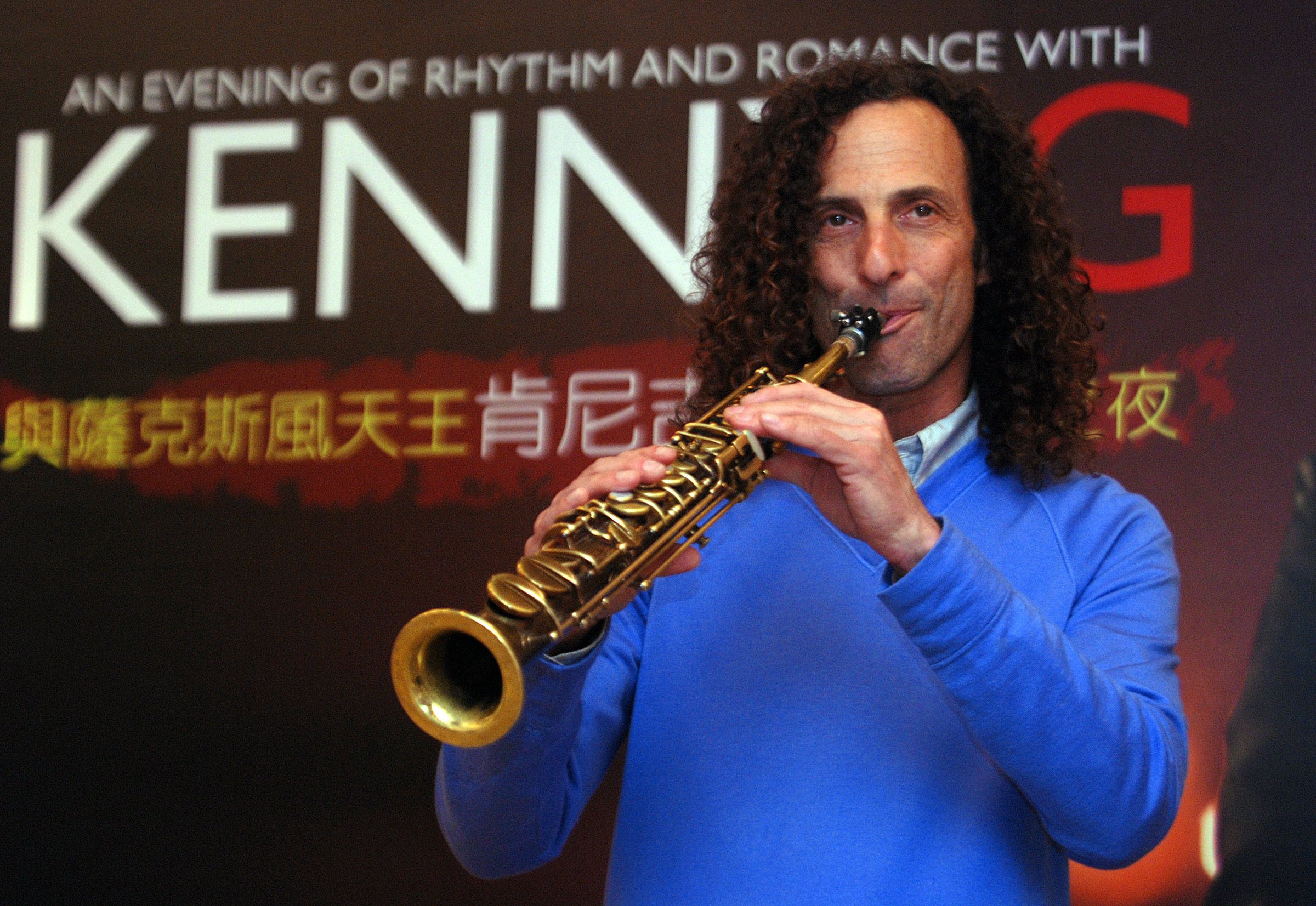
Kenny G is not happy that China is not happy with him.
The American titan of soft jazz, whose elevator-friendly tunes are wildly popular in China, on Thursday clarified that he “loves China” and that his recent visit to the protests in Hong Kong was in no way a gesture of support for the demonstrators.
Kenny G’s much photographed walkabout at the main pro-democracy protest in Hong Kong on Wednesday led the Chinese Foreign Ministry to reiterate its line that foreigners — saxophonists included — should tread “cautiously and not support Occupy Central and other illegal activities in any form.”
The superstar saxophonist was only too happy to clarify his stance.
“I am not supporting the demonstrators as I don’t really know anything about the situation and my impromptu visit to the site was just part of an innocent walk around Hong Kong,” he wrote in a Facebook post and on Twitter, clarifying that he had dropped by the protests “as a tourist” en route to a concert at a golf resort near the southern Chinese city of Shenzhen.
“I love Hong Kong and always come here to perform when I’m asked to. I love China and love coming here to perform for over 25 years,” he emphasized. “I only wanted to share my wish for Peace for Hong Kong and for all of China as I feel close to and care about China very much.”
Hong Kong’s demonstrators are waging the greatest challenge to the Chinese government in decades, refusing to quit the financial hub’s streets until Beijing grants the city true democracy.
Kenny G appeared on Thursday to have deleted a photo from his Twitter account in which he posed in front of a banner at the main protest encampment in Hong Kong’s Admiralty district. It had been captioned: “In Hong Kong at the sight [sic] of the demonstration. I wish everyone a peaceful and positive conclusion to this situation.”
“I was not trying to defy government orders with my last post,” he said later, of the tweet. His most recent nonprotest related tweet is about dim sum.
Kenny G, whose real name is Kenny Gorelick, is extraordinarily popular in China. One of his songs, “Going Home,” floods Chinese malls and events at closing time to gently suggest that guests should head for the exits. Conspiracy theorists had wondered if the appearance of the “Going Home” artist himself at the occupied streets might be a not-so-subtle message to the protesters from Beijing.
Big celebrities who rely on the Chinese government’s goodwill to reach China’s colossal entertainment market have toed an uneasy line in calibrating their public opinion on the Hong Kong protesters. Jackie Chan, the Hong Kong action-film darling and pious Chinese government supporter, has publicly chastised the demonstrators for wounding Hong Kong’s financial prospects with the continued sit-ins in major traffic arteries (he also appears to make a cameo in a recent Kenny G tweet).
Yet in seeking to placate the Chinese government’s unhappiness, Kenny G conjured up a lot more unhappiness, as Facebook commentators were not too pleased to hear that the top-selling artist “loves China” and doesn’t “really know anything about the situation.”
“I would suggest before you start declaring your love for China you get yourself informed,” wrote one netizen, under the Facebook apology. “It’s not a hard situation to figure out!”
“Who wants to stand up for democracy in Hong Kong when there’s so much money to be made under the state-managed authoritarian capitalist system in mainland China?” continued someone else.
“Sounds like someone’s scared of the Chinese govt.,” wrote one commentator.
“Thanks for nothing,” concluded another.
Others, though, encouraged the musician to “not allow the negativity to bring you down!” and said they still loved his music.
Beijing has been accusing foreign governments of covertly inciting the demonstrations and has sternly told foreign leaders expressing support for the protesters to mind their own business.
Hong Kong’s Chief Executive Leung Chun-ying has repeated Beijing’s line and alleged that “foreign influence” is involved in the demonstrations, but has declined to name such influence until the “appropriate time.” He has never mentioned smooth jazz as a possible culprit.
More Must-Reads from TIME
- How Donald Trump Won
- The Best Inventions of 2024
- Why Sleep Is the Key to Living Longer
- How to Break 8 Toxic Communication Habits
- Nicola Coughlan Bet on Herself—And Won
- What It’s Like to Have Long COVID As a Kid
- 22 Essential Works of Indigenous Cinema
- Meet TIME's Newest Class of Next Generation Leaders
Write to Elizabeth Barber / Hong Kong at elizabeth.barber@timeasia.com